Understanding your Contacts
Lighthouse Training - Module 7
Time estimate: 7 minutes
Topics: Lighthouse, Lib Dem systems and tools, membership data
Each contact in Lighthouse has different statuses and dates on their record. These exist so you can quickly see key information about your contacts, like whether they are members or if they need to renew their membership. Understanding each of these is important for understanding your contacts.
Membership status
This field tells you the current state of a person’s membership. Below is an image of an active member's record.
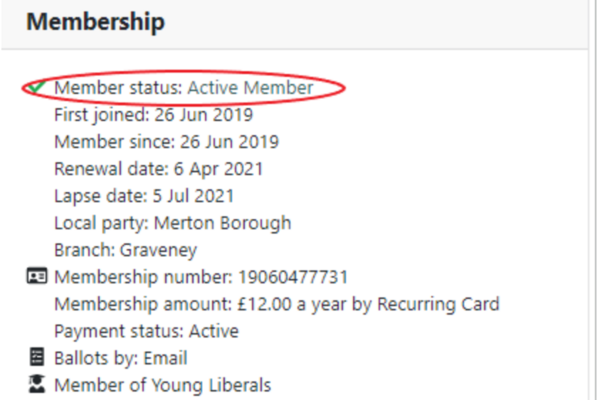
-
Active - this person’s membership or supporter registration is current.
-
At-Risk - this member is in their grace period (the 90 days after their renewal date).
-
Suspended - this person’s membership has been suspended.
-
Expelled - this person has been expelled from the party.
-
Resigned - this member has resigned.
-
Pending - this person has begun an application to join but has not completed it.
-
Lapsed - this person’s membership lapsed.
Membership Type
This field tells you if a person is a member, supporter or non-member.
Member - indicates this person has paid for membership.
Supporter - indicates this person has registered as a supporter.
Non-Member - indicates this person is not a member or supporter.
Payment method
This field tells you how they pay for membership (and should be blank for supporters). This field also shows you how much the member has paid their most recent membership payment.
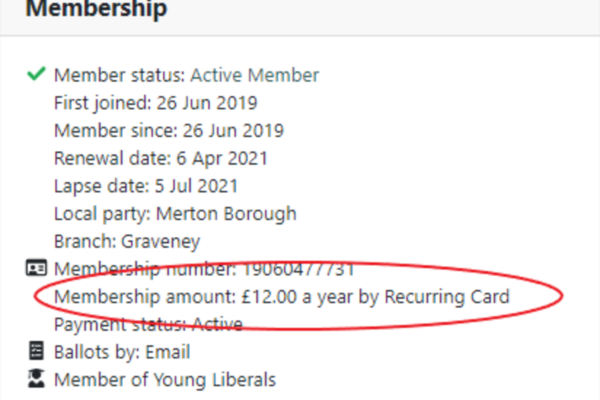
-
Direct Debit - they pay by direct debit.
-
Recurring card - they pay by recurring card payments
-
One-off card - they pay by one-off card payments
-
Cash & Cheque - they pay by cash or cheque
Payment status
This field tells you what state a member’s payment is in. If someone has been paying by direct debit and are surprised their membership hasn't automatically been renewed, you can check their payment status to see why.
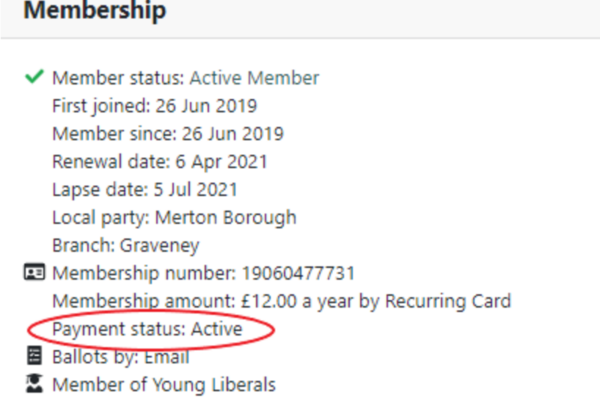
-
Active - Their payment has been received and there are no issues.
-
Pending - Their payment has been set up but not collected yet, this is only for Direct Debits.
-
Failed - The last time we attempted to collect their payment it failed. They will need to set up a new payment. This is usually for card payments.
-
Cancelled - The member has cancelled their payment method. This is usually for Direct Debits.
-
Not Received - The member pays by a one-off payment which has not yet been received. This should only be true in the 90 days in the run up to, or during, their grace period.
Understanding membership dates
On a member's contact record, you will see a series of dates these allow you at a quick glance to see how long someone has been a member for. Here is a breakdown of the different dates you will see on someone’s membership.
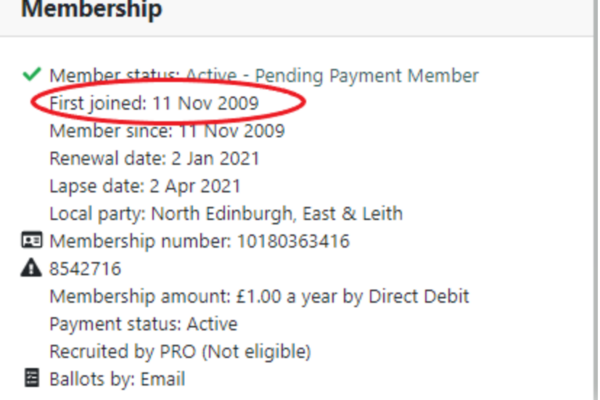
First joined
This date indicates when a member first joined the party.
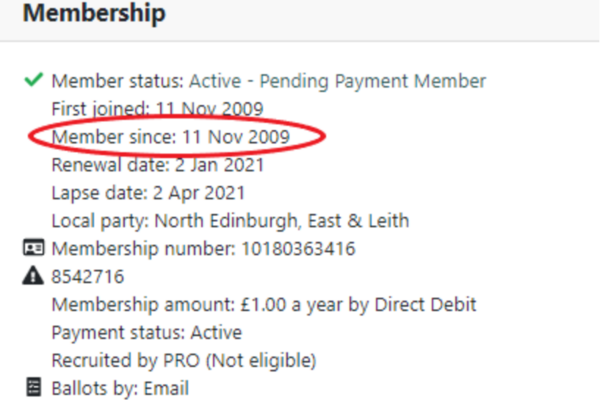
Member since
The date indicates the beginning of their current membership, it will differ from first joined if the member has ended their membership and rejoined.
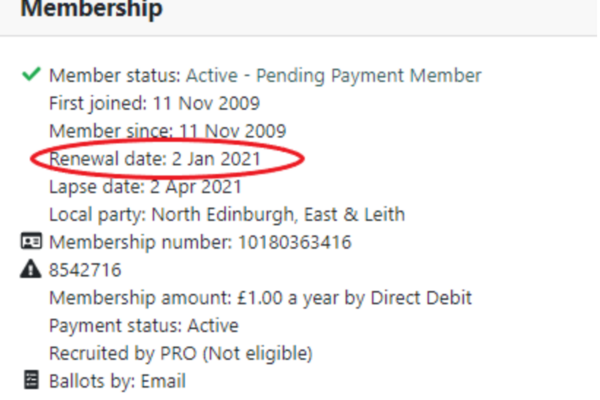
Renewal date
This date marks 12 months since their last membership payment. If this date is in the past, it means this member is ‘at risk’.
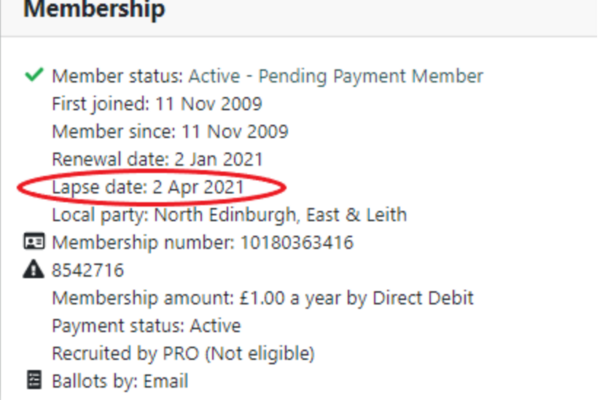
Lapse date
After the renewal date has passed, we allow 3 months for the member to renew, before their membership formally ends. This is updated manually, so occasionally this date is a week or so in the past. If you notice someone with a lapse date months in the past, please submit a problem and alert HQ.
Tasks
Tasks are quick and easy things you can do after each module to help practice what you've learned. Try them out and see if they help!
|
